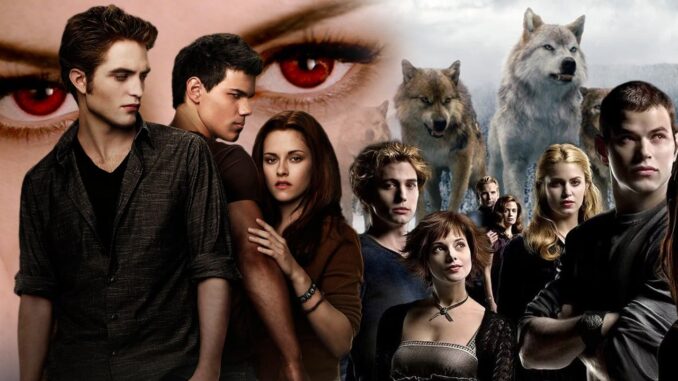
The Golden Cage vs. The Emotional Hammer: Who Is More Toxic in the Eyes of Psychoanalysis Fans?
The enduring Twilight saga, with its fervent fan bases and deeply divisive romantic entanglements, offers fertile ground for amateur and professional psychoanalysts alike. Beyond the sparkling skin and wolfish grins, the relationships at its core are a veritable feast of attachment issues, control dynamics, and identity struggles. When asked who, between the brooding vampire Edward Cullen and the fiery werewolf Jacob Black, is “more toxic” in the eyes of a psychoanalysis fan, the answer is rarely simple, but often leans towards the insidious over the overt. While Jacob wields an emotional hammer, Edward prefers the more subtly suffocating embrace of a golden cage, and it is the latter that often earns the deeper critical gaze from those trained to uncover the unconscious roots of psychological harm.
From a psychoanalytic perspective, Edward Cullen is a walking, talking complex of control, narcissism, and a deeply unhealthy projection of his own arrested development onto Bella. His “love” for Bella, initially presented as chivalrous and protective, quickly devolves into pervasive surveillance and decision-making on her behalf. A psychoanalysis fan would immediately flag the constant watching of her sleep, the clandestine entry into her bedroom, and the dismantling of her truck as not merely romantic gestures, but profound violations of autonomy and boundaries. This isn’t just possessiveness; it’s a narcissistic need to control his “object” (Bella) to maintain his own fragile internal equilibrium. His fear of losing control, of succumbing to his vampiric “monster,” is externalized as a need to infantilize Bella, to keep her in a state of arrested development where she is perpetually safe, and thus, perpetually dependent on him.
Moreover, Edward’s charm functions as a highly effective tool of manipulation. He idealizes Bella to an almost suffocating degree, projecting onto her the purity and innocence he feels he lacks. This idealization isn’t about truly seeing Bella for who she is; it’s about seeing her as a mirror for his own desperate need for redemption. A psychoanalyst would argue that this form of “love” is deeply unhealthy for the recipient’s ego development. Bella, instead of being encouraged to grow, individuate, and explore her own desires, is constantly funneled towards Edward’s desires, Edward’s world, and Edward’s definition of safety. Her nascent self is subsumed by his all-encompassing presence. The “choice” she faces – humanity vs. immortality, Jacob vs. Edward – is rarely presented as truly her own, but rather as a decision Edward has implicitly or explicitly guided her towards, usually by highlighting the dangers of any alternative. The repeated instances of him leaving her “for her own good,” only to return and exacerbate her trauma, speak to a deeply ambivalent attachment style and a pattern of emotional abandonment dressed up as heroic sacrifice.
Jacob Black, on the other hand, presents a more overtly aggressive and boundary-violating form of toxicity. His love for Bella is characterized by intense emotional blackmail, physical coercion, and a stark refusal to accept her stated preferences. The infamous forced kiss, the constant guilt-tripping (“I’ll die without you,” “You don’t know how much I need you”), and his aggressive rivalry with Edward, often placing Bella squarely in the middle, are textbook examples of manipulative behavior. A psychoanalysis fan would see Jacob’s actions as driven by a raw, unmitigated id, struggling with rejection and expressing its frustration through demands and emotional outbursts. His “protection” often feels like territoriality, a primal assertion of ownership over Bella rather than genuine care for her well-being independent of his desires.
The concept of “imprinting” in the Twilight universe, which binds a shapeshifter to their soulmate, is perhaps the ultimate psychoanalytic nightmare. While presented as destiny, from a critical lens, it strips both the imprinter and the imprinted of agency. For Jacob, it acts as a narrative device that excuses his persistent pursuit of Bella, turning his problematic attachment into a preordained “love.” For Bella, or in the case of Renesmee, it removes any possibility of genuine, uncoerced choice in a romantic partner. It’s a literal manifestation of an object relationship where one party is psychologically enslaved to the other, a profound violation of selfhood that is jarringly glossed over as romantic.
So, who is more toxic? While Jacob’s actions are often more visibly aggressive and emotionally manipulative, making them easier to identify as problematic, Edward’s toxicity, for a psychoanalysis fan, is often considered more insidious and potentially more damaging to the long-term health of an individual’s ego and sense of self. Jacob’s emotional hammers, while painful, often provoke a clearer fight-or-flight response, allowing for the possibility of resistance and boundary-setting (however difficult Bella finds it). Edward’s golden cage, however, operates under the guise of protection and devotion, subtly eroding autonomy, fostering codependency, and creating a scenario where Bella’s self is so thoroughly intertwined with his that extrication becomes psychologically crippling.
In the eyes of psychoanalysis, the slow, consistent erosion of self-worth and independent ego development, disguised as ultimate love and protection, is often more profoundly disturbing than overt aggression. Jacob’s pathology is visible and loud; Edward’s is veiled in allure and presented as salvation. It is this subtle psychological suffocation, the reduction of Bella into an extension of Edward’s own needs and fantasies, that would likely earn him the crown of “more toxic” from those who understand that the deepest wounds are often inflicted not by blunt force, but by the gentle, persistent pressure of a controlling “love.”
